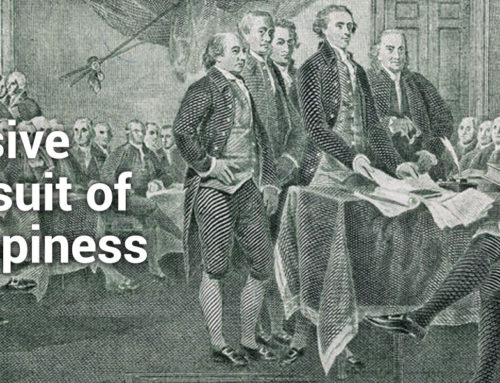Why is self-awareness so important?
Bill George in his book True North reports that seventy-five members of the Stanford Graduate School of Business Advisory Council nearly unanimously chose self-awareness as the most important capability for leaders to develop. In his book, Emotional Intelligence, Daniel Coleman lists self-awareness as the first element in describing the leader’s role. Successful leaders do two things exceptionally well. They make good decisions most of the time and build strong and lasting relationships. Increased self-awareness almost always leads to better decisions that in turn reinforce one’s self-confidence. Increased self-confidence leads to building a healthy self-esteem that leads to stronger personal relationships.
What is self-awareness?
Social psychologists define self-awareness as the degree of clarity with which we perceive, understand and evaluate, both consciously and non-consciously everything that affects our lives. While the definition is accurate it took me years to appreciate the depth of its meaning. Throughout history, sages have expounded the importance of increasing self-awareness through self-discovery and lifelong learning. Quotes such as “know thyself”, to “thine own self be true”, and the “unexamined life is not worth living” are familiar to all of us.
Our awareness is made up of four key factors:
1. Our intellectual acumen: the ability to analyze, correlate and evaluate all experiences and to accurately determine the cost and benefit of any action we may take.
2. Our intuitional insights driven primarily from subconscious drives and urges emanating from the heart.
3. Our total life conditioning, both conscious and non-conscious, resulting in our knowledge base, values, ideals, and belief system.
4. Our sense of personal worth that drives our moods, attitudes, emotional reactions, prejudices, habits, desires, fears, aspirations and goals as a result of our conditioning.
Unfortunately, cognitive knowledge doesn’t translate well to experiential knowledge. It is extremely difficult to see ourselves as others see us and this is essential in order to increase our self-awareness. It is said that an hour spent in dialog with a wise man is worth thousands of hours reading books.
I like to think of self-awareness in three parts: the intellectual and mental “database” that we have in our head, the emotional and spiritual “database” that we carry in our hearts, and the filters we use to selectively screen and store information in these two databases. All of us have very thick filters conditioned by our heredity, upbringing, intuitional insights, and total life experience that limit our self-awareness of reality. This limited awareness at times results in faulty decisions and inappropriate behavior. Many of us trained in science and engineering tend to be data rich in our intellectual and mental folders and data poor in our emotional and spiritual folders. As a result, we tend to make most decisions based primarily on “logic” with little regard to intuition and rarely consider the effect of our behavior on others. There is an emerging school of thought that characterizes intuition as the intelligence of the heart.
5 ways to increase your self-awareness
The hardest person you will ever have to lead is yourself. You must take personal responsibility for your own development starting with increasing your self-awareness. Save your money and avoid all advice from instant success books and seminars. Expect the development process to last a lifetime and enjoy the exploration. Here are five recommendations I can make based on personal experience:
· Become more introspective – find out what really motivates you, what drives your behavior, why do you do the things you do. In time you will discover your hidden strengths and become aware of your not so obvious weaknesses.
· Find a good mentor – as I said previously, an hour spent with a wise man is worth a thousand hours reading books. One of the hardest things to do is to see ourselves as others see us. A good mentor should make you feel uncomfortable at times.
· Observe and model leadership behavior – watch what outstanding leaders do in a variety of situations and read autobiographies.
· Be willing to dent your ego – listen to feedback from others even if you don’t want to hear it. When you experience unfavorable reaction from people, instead of rationalizing, ask yourself “what was it that I said or did that triggered that reaction”.
· Seek continuous improvement in your self-awareness – Constantly evaluate your decisions and actions by conducting a “lessons learned” exercise. Decide what went right and what went wrong and objectively examine the reasons why. Then commit to improving that decision or action the next time. This is the process of continuous improvement and lifelong learning.
On my wall in my office is a plaque with my favorite reminder, “better than yesterday, not as good as tomorrow”. Once you start on this lifelong journey of self-discovery, I assure you, you will find it personally rewarding.
For a more in-depth discussion of this topic, read Leading Science and Technology Organizations: Mastering the Fundamentals of Personal, Managerial, and Executive Leadership


